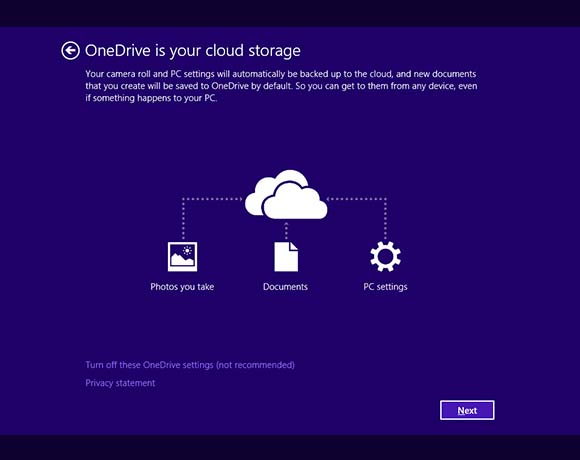One of the advantages we have today in the fight against coronavirus that wasn’t as sophisticated in the SARS outbreak of 2003 is big data and the high level of technology available. China tapped into big data, machine learning, and other digital tools as the virus spread through the nation in order to track and contain the outbreak. The lessons learned there have continued to spread across the world as other countries fight the spread of the virus and use digital technology to develop real-time forecasts and arm healthcare professionals…
Read MoreTag: privacy
Safaricom invites bids of a location tracking platform
Safaricom has invited bids to seek suppliers of a location tracking and intelligence platform. In a bid notice, they express interest to take advantage of a location intelligence system which will help them build customer profiles based on their location, according to Business Daily. “Consequently, the evolution of the mobile network and devices has enabled Safaricom to gather information from the connected devices. At the core of any reliably connected device is an accurate location intelligence system,” the bid notice said. According to the latest sector statistics by the Communications Authority,…
Read MoreKenyans to rely on new Data Protection Law
The Data Protection Act that came into effect last month is expected to provide a framework for data protection in the country, and help boost privacy of the citizens. Before the Act was passed, Kenya did not have a specific data protection law that regulated the sector, exposing private data of citizens to misuse. The law conceived in 2015 is meant to provide a regulatory provision in the collection, retrieval, processing, storing, use and disclosure of personal data. Under Article 31(c), the Act outlines the right of every person not…
Read MoreInternet providers could easily snoop on your smart home
IoT devices often identify themselves voluntarily, usually by connecting to specific domains or URLs. Even if they didn’t, there are simple ways of profiling them based on observation and some known data. It’s certainly true that encryption is on the rise online. Data from Mozilla, the company behind the popular Firefox browser, shows that more than half of web pages use HTTPS, the standard way of encrypting web traffic. When sites like The Atlantic use HTTPS, a lock icon appears in users’ web browsers, indicating that the information being sent…
Read MoreISPs argue Web history isn’t “sensitive” they should be able to sell it
Internet providers are continuing to argue that they should be free to share and sell users’ web history without permission because it isn’t “sensitive information.” “Web browsing and app usage history are not ‘sensitive information,’” CTIA said in a filing with the Federal Communications Commission yesterday. CTIA is the main lobbyist group representing mobile broadband providers such as AT&T, Verizon Wireless, T-Mobile USA, and Sprint. The disagreement is around whether internet providers should be treated differently than web companies, like Facebook and Google. Internet providers argue that it’s unfair that the…
Read MoreMicrosoft is putting OneDrive ads in Windows 10’s File Explorer
Microsoft made a lot of changes in Windows 10 that helped it put the mistakes of Windows 8 in the rear view mirror. Not all of Microsoft’s ideas are good, though. The company has shown a tendency to get a little too casual with how it promotes its services within Windows. Users have reported seeing ads to sign up for OneDrive, — Microsoft’s cloud storage service — at the top of the Quick Access screen that comes up when you open a new File Explorer window. Microsoft’s OneDrive cloud storage…
Read MoreGoogle ordered to pay $20M for ripping off anti-malware patents in Chrome
Google has been ordered to pay $20m damages after its Chrome browser was found to have infringed four anti-malware patents. According to The next web, Google is tremendously dedicated to improving its Chrome browser, but it appears the search engine giant might’ve gotten a little carried away in the process – and now it has to pay the piper. A District Court in Texas ordered the tech giant to spew out $20 million in damages for infringing four anti-malware patents in Chrome. The verdict was delivered on Friday following a jury…
Read MoreUnited States Imposes Cybersecurity Sanctions on Russia
On December 29, 2016, President Obama issued a new executive order that expands the authority of the US Secretary of Treasury to impose sanctions on individuals and entities for cyber-attacks to maintain cybersecurity reports the Business Advisor. This action marks the first-time sanctions have been imposed under the Cybersecurity Sanctions Program established on April 1, 2015, with the designation of nine entities and individuals. The new executive order specifically sanctioned five entities and four individuals in Russia for cyber operations aimed at the US election. The State Department announced that…
Read MoreData Breaches: First half of 2015 saw venture firms invest $1.2 billion in cybersecurity startups
Data Breaches Boost Funding for Cybersecurity Startups Extract: In the 2015 first half, venture firms invested $1.2 billion in cybersecurity startups, according to researcher CB Insights. That is down slightly from $1.4 billion a year earlier but up sharply from $771 million in 2013’s first half. The shift is particularly notable at Andreessen Horowitz, which used to view security companies as necessary for Internet safety but less lucrative than other technology niches. One reason is that cybersecurity startups were often acquired prior to an initial public offering, says Scott Weiss,…
Read MoreSimple Website Security Flaw Exposes Data Of Charter Internet Customers
A Website Security flaw discovered in the site of Charter Communications, a cable and Internet provider active in 28 states, may have exposed the personal account details of its customers. Security researcher Eric Taylor discovered the cable provider’s vulnerability as part of his research, and demonstrated how a simple header modification performed with a browser plug-in could reveal details about Charter’s Internet subscribers. After Fast Company notified Charter of the issue, the company said it had installed a fix within hours. The vulnerability could reveal personal information of “millions” of the…
Read More






